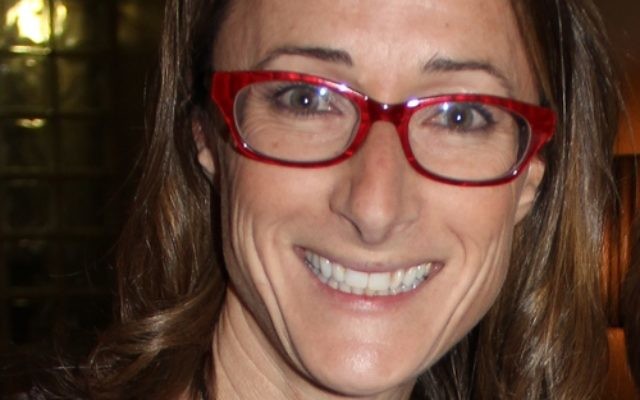A century of saving and changing lives
The Hebrew University can boast more than 7000 patents registered, eight Nobel Prize winners and one Fields Medal winner in mathematics. To celebrate its centenary, its Start-Up Nation Hothouse will offer business leaders from around the world a unique program focused on innovation, investment and inspiration.
THAT happened in 1915? The most decorated German scientist of all time, Paul Ehrlich, left money for the establishment of the Hebrew University in his will.
It wasn’t Albert Einstein, Sigmund Freud, Martin Buber or Chaim Weizmann – who were all founders of the Hebrew University.
Ehrlich, working in the fields of haematology, immunology, antimicrobial chemotherapy, treatment for diphtheria and syphilis, winner of the Nobel Prize in physiology and medicine in 1908 and many other prizes, had joined the founding committee of the university in 1914.
In 1918, the university was officially founded with the laying of the first cornerstone thus enabling Ehrlich’s dream to become a reality.
Among its six campuses and seven faculties, the research of the Hebrew University and its technology transfer company Yissum is instrumental in changing lives and saving lives.
Professor Amnon Shashua developed a technology called Mobileye, the computerised vision that analyses everything in front of a vehicle.
Mobileye is a vision-based advanced driver assistance system (ADAS) providing warnings for collision prevention and mitigation.
It is Israel’s largest IPO and the largest company to have ever come out of any university in the world. This company recently sold for US$15billion.
There are three kinds of light bulbs in the marketplace. The Edison incandescent light bulb that is incredibly inefficient – generating a huge amount of heat; fluorescent light bulbs that are quite efficient; and the most energy efficient light bulbs out there are LEDs.
The problem with LEDs is when you want to tune their spectrum there is a dramatic loss of efficiency.
What is the point of using LEDs if you want to tune them and then lose the efficiency? Uri Banin invented a technology to solve this problem and started a company that was bought by the largest manufacturer of LEDs in the world – Merck, a German chemical company.
Oded Shoseyov, an expert in nanobiotechnology, tackled the waste product of the paper pulp industry, one of world’s cheapest materials. He infused it with a flexible and elastic component to make it lighter and more elastic than rubber.
The leading drug in the world for the treatment of dementia is generated by Professor Marta Weinstock-Rosin’s research. It is called Exelon and is marketed by Novartis all over the world.
Exelon is a cholinesterase inhibitor, a type of medicine prescribed for people in the early or middle stages of Alzheimer’s disease.
Though not a cure, Exelon has been shown to be an effective medicine for treating the symptoms of mild to moderate Alzheimer’s disease.
It can slow the progression of symptoms and help people with mild to moderate Alzheimer’s disease stay connected longer to the relationships and activities they value and enjoy.
The first anti-cancer drug to come out of Israel against ovarian cancer – and the first nano drug approved by the Federal Drug Administration in the US – is called Doxil. It is marketed by Johnson & Johnson.
Researchers have taken a very, very potent chemotherapeutic agent and encased that in a lipid droplet. The lipid droplet maintains a closed environment that only opens at the area where it is needed, so it reduces the toxicity and side effects dramatically.
Doxil is indicated for the treatment of patients with ovarian cancer whose disease has progressed or recurred after platinum-based chemotherapy. This drug enjoys sales of close to US$1 billion every year. It is the leading cure for ovarian cancer.
You probably remember, not so long ago, that the shelf-life of tomatoes was measured in hours, and they were not a viable agricultural product. The research of Nachum Kedar and Haim Rabinowitch led to the invention of the cherry tomato that ripens within a week.
The Hebrew University can boast more than 7000 patents registered, eight Nobel Prize winners and one Fields Medal winner in mathematics. Other accolades include 269 Israel Prizes, nine Wolf Prizes, 33 EMET Prizes for Art, Science and Culture and 89 Rothschild Prizes.
To celebrate the centenary, the Hebrew University Start-Up Nation Hothouse will offer business leaders from around the world a unique program focused on innovation, investment and inspiration. Leaders will get an insider perspective of the Jerusalem world of high-tech and will network with local entrepreneurs and industry leaders.
The focus will be on entrepreneurship, high-tech innovation, Israel’s economic transformation and Jerusalem, central to the Startup Nation. From June 8, participants will attend a TED talk, visit high-tech companies and get a unique glimpse into the Israeli high-tech world.
To attend this, and the Board of Governors from June 9-13, contact the Federal office of the Australian Friends of Hebrew University on (02) 8389 2825.
RACHELE SCHONBERGER is NSW president, Australian Friends of Hebrew University.


comments